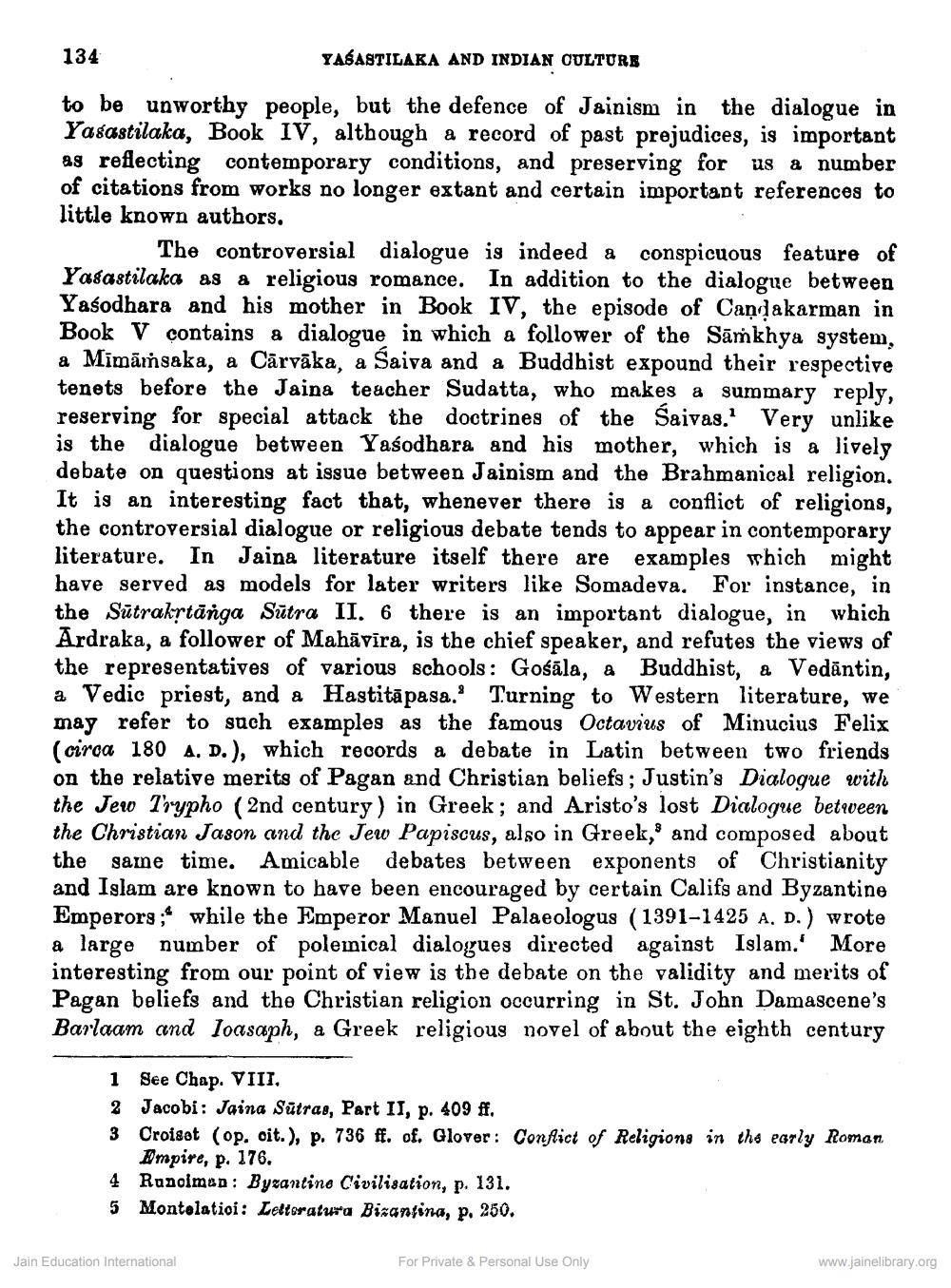________________
134
YASASTILAKA AND INDIAN CULTURE
to be unworthy people, but the defence of Jainism in the dialogue in Yasastilaka, Book IV, although a record of past prejudices, is important as reflecting contemporary conditions, and preserving for us a number of citations from works no longer extant and certain important references to little known authors.
The controversial dialogue is indeed & conspicuous feature of Yasastilaka as a religious romance. In addition to the dialogue between Yaśodhara and his mother in Book IV, the episode of Caņdakarman in Book V contains & dialogue in which & follower of the Sāmkhya system, a Mimāṁsaka, a Cārvāka, a Saiva and a Buddhist expound their respective tenets before the Jaina teacher Sudatta, who makes a summary reply, reserving for special attack the doctrines of the Saivas. Very unlike is the dialogue between Yaśodhara and his mother, which is a lively debate on questions at issue between Jainism and the Brahmanical religion. It is an interesting fact that, whenever there is a conflict of religions, the controversial dialogue or religious debate tends to appear in contemporary literature. In Jaina literature itself there are examples which might have served as models for later writers like Somadeva. For instance, in the Sūtrakytānga Sūtra II. 6 there is an important dialogue, in which Ardraka, a follower of Mahāvīra, is the chief speaker, and refutes the views of the representatives of various schools: Gośāla, a Buddhist, a Vedāntin, a Vedic priest, and a Hastitāpasa. Turning to Western literature, we may refer to such examples as the famous Octavius of Minucius Felix (circa 180 A. D.), which records a debate in Latin between two friends on the relative merits of Pagan and Christian beliefs; Justin's Dialogue with the Jew Trypho (2nd century) in Greek; and Aristo's lost Dialogue between the Christian Jason and the Jew Papiscus, also in Greek, and composed about the same time. Amicable debates between exponents of Christianity and Islam are known to have been encouraged by certain Califs and Byzantine Emperors; while the Emperor Manuel Palaeologus (1391-1425 A, D.) wrote a large number of polemical dialogues directed against Islam.' More interesting from our point of view is the debate on the validity and merits of Pagan beliefs and the Christian religion occurring in St. John Damascene's Barlaam and Ioasaph, a Greek religious novel of about the eighth century
1 See Chap. VIIT. 2 Jacobi: Jaina Sütras, Part II, p. 409 ff. 3 Croiset (op. cit.), p. 736 ff. of. Glover : Conflict of Religions in the early Roman
Empire, p. 176. 4 Runolman: Byzantino Civilisation, p. 131. 5 Montolatioi: Letteratura Bizantina, p. 250.
Jain Education International
For Private & Personal Use Only
www.jainelibrary.org




